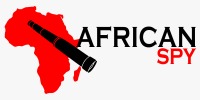
Current ruthless massacres going on in South Africa targeting immigrants from other African countries have left the African continent in a state of fear on what might befall that African country should the targeted human slaughter space forth.
The attacks, traditionally referred to as xenophobia, have earned the termed 'Afrophobia' for their motives pinned on the direct aversion of nationals from fellow African states can be predicted as enervating an economy that never bore identity nor had any local ownership and significant entitlement for native South Africans dating back to the Apartheid regime of the Boer epoch.
These daily Afrophobic attacks have not been received with any modicum of acceptance from leading African states which even bailed South Africa to earn its freedom from colonial mastery. African dissent against this action will only but gradually disengage South Africa's economic power wheel whilst destabilizing its political well-being.
Jacob Zuma will need to act promptly to avoid running in the same infamous track of Nigeria's former President, Goodluck Jonathan who was sold out by his inactive role in containing the Boko Haram insurgence which is wreaked havocin Nigeria, subsequently leading him to lose out to Muhammadu Buhari in recently held elections in that country. Jonathan conceded defeat and asserted that 'nobody's ambition was worth the blood of any Nigerian'.
South Africa, perhaps like most economies of former colonial African states would regret loaning its economy to foreign trusteeship, but as an economy built purely on foreign human capital, the story for South Africa becomes somewhat fragile.
While the country could be credited for a removed cataract to realize its economic risk zones demanding immediate resolution, the danger is in the country's knee jack reaction that has bastardized human rights and soiled its regional or international relations for posterity. But yet, it remains with no solutions.
To many, President Mugabe stands as the most un-preferred politician mainly due to two common factors, first being his unwavering posture on what he regards as 'imperialistic motives of western countries marshaled by Britons and Americans' and secondly, his resultant move of effecting black economic empowerment nationally packaged and bound as 'the indigenization policy'.
South Africa also took chance to jibe Mugabe for the programme, which the nascent Economic Freedom Fighters (EFF) adopted and equipped itself for fortification, only to be misconstrued as replicating Zanu PF ideologies.
But, whether this will confirm the frail side of President Jacob Zuma, the volatility of the situation in South Africa could be traced as back to year 2012 when the state reacted in lethal ways to grievances posed by mine workers at Lomnin, near Rustenburg which almost matched the Sharpeville massacre of 1960.
Marikana shootings were alleged to be a result of poor salaries and was seen as exposing an ignorant governance system that could not react for the protection of aggrieved local workers who then were instead shot from the backs showing apparent non-resistance from those who protested.Thelater set-up Marikana Commission of Inquiry failed to veil and address this.
What is urgent for South Africa has been established as an urgency in accepting the reality around enterprise ownership in that country and to seek sustainable alternatives that should empower locals but retaining respect for the rights of foreign nationals. It is believedin Durban, where the first strikes took place, businesses are owned largely by people from the Indian community.
However, Cde Patrick Zhuwao, a Zanu Pf politburo member,discussing the tragedy with this journalist, could not have kind words for the situation occurring in neighboring South Africa, relating the occurrences to stark genocide, dismissing the correlation of the matter to economic access.
'21 years ago, we did not have indigenization in Zimbabwe but we did not resort to killing people. I think this issue is more about the illegal killing of human beings and this xenophobia should be treated as intended genocide.
There is a wide difference between locals having an upper hand in the running of economics in a country and locals killing human beings. Any narrative that seeks to match that at this instance is extremely dangerous.
If I were you, I would have unpacked the two guys involved, one King Zwelithini and Jacob Zuma who even has a sister married to a Zimbabwean. How can the King of the ama'Zulu' ethnic group initiate the killing of the people who are his own people.
Surely, they have Nobel prizes for idiocy. We can never always be blaming foreigners for our stupidity. And equally enough, we can't compare Robert Mugabe to this, especially when involving these two. This is purely an issue of leadership. This is what happens when you ask this to anybody who is affected, it is an emotive issue', said Cde Zhuwao.
The Movement for Democratic Change led by Morgan Tsvangirai had earlier on published a press statement condemning events taking place in South Africa, a state that long professed to be a reference for African democracy and a hub for human rights preservation.Where to South Africa?
*Zisunko Ndlovu is a journalist, political writer and rural development practitioner from Binga kubutonga@gmail.com




0 Comments